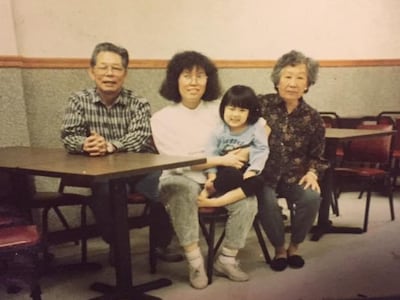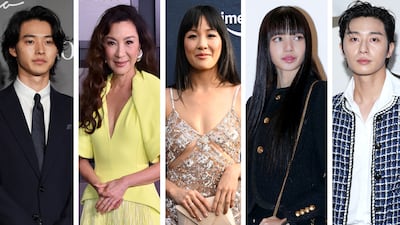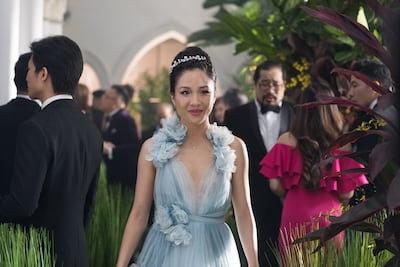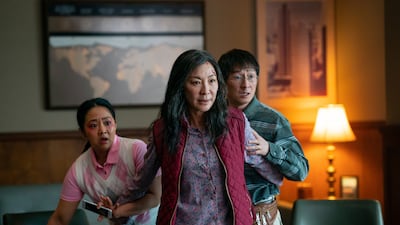When I watched Everything Everywhere All at Once for the first time last year, I didn’t know what to expect.
The film synopsis was confusing and vague, but I saw it received good reviews and had an almost all-Asian cast with Michelle Yeoh in the lead role, so I decided to give it a go. After sitting through the 140-minute runtime, I’m glad I did. I've also since rewatched it twice. In addition to coincidentally having the same first name as Yeoh’s lead protagonist Evelyn, I found myself very connected to the film.
Despite all the plotlines that were touched on in the multiverse-spanning movie, the simple story of a Chinese-American immigrant family just trying to get by was the one that easily stood out to me the most.
For example, in the film, Evelyn and her husband Waymond are small business owners who run a laundromat and have to deal with annoying customers. This reminded me of my own parents, who immigrated to the US from China and Hong Kong, and became restaurant owners in their quest for the "American Dream".
While it might not mean much to other people, it was cathartic to see what felt like a shared experience being played out on screen. Being able to connect with something this simple made me wonder: if I had seen these examples when I was younger, would things have been different for me as I was part of one of only two Chinese families in a predominantly white town in Massachusetts?

In the past few years, there have been more films with Asian casts, as well as films from Asia, crossing over to mainstream audiences. The explosion of Hallyu from South Korea has also played a major role with K-pop, K-dramas and K-beauty seemingly everywhere while shows from Japan such as Alice in Borderland, Terrace House and Old Enough have also found success on Netflix.
Suddenly, being Asian actually seems very cool.
Growing up, there were so many times when I didn’t really know who I wanted to be. I’ve written before about my identity crisis when it comes to being Chinese but also being American and the difficulty in figuring out how to seamlessly combine the two.

I spent years trying to figure myself out in places that weren’t right for me. I’d watch make-up tutorial videos for eyes that weren’t shaped like mine or want to cut my hair in styles that weren’t meant for straight, thick Asian hair. Instead of just trying to lean into who I was, I wanted to find ways to be like everyone else because of that lack of Asian representation around me.
I think these days it would have been easier, thanks to things such as social media and streaming services. Asian representation is not only way more visible but is also embraced and celebrated. Sometimes it amazes me to see how many people from around the world can connect and bond thanks to something like K-pop or K-dramas.
Unfortunately, when I was younger, these things didn’t quite exist, at least not in the way they do now.
When I was 12, Crouching Tiger, Hidden Dragon (which also starred Yeoh, who was arguably snubbed for an Oscar then, though is up for Best Actress this year) garnered attention as it was a box office hit and won Best Foreign Language Film for Taiwan at the Academy Awards in 2001. But I just couldn’t relate to the film about martial arts heroes in ancient China, no matter how gracefully shot it was and how beautiful of a story it told.
It wouldn’t be until 2018’s Crazy Rich Asians — which again happened to have Yeoh in it — that for the first time, at 30, I saw characters I could relate to and that also looked beautiful while on the big screen. It felt like a watershed moment for Hollywood, finally putting out a film with an all-Asian cast for the first time since 1993’s Joy Luck Club.

But then it turns out, we didn’t really need Hollywood anyway. In the past few years, South Korea, Japan and China have since proven they are more than capable of making their own hit films without needing any western help. The best example is Bong Joon-ho’s Parasite, which became the first non-English movie to win Best Picture at the Oscars in 2020 among other accolades.
These days, it feels differently and rightfully so. Even if Hollywood is still slow to adapt, there are so many other places to find representation. Come Sunday night, I hope Yeoh finally gets her moment. I hope little Asian girls and young aspiring Asian actresses know that they can do it too. And even if they think they can’t, it's never too late to blaze their own path in this world.


